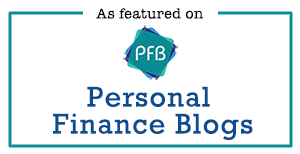As I grow older I become more and more tolerant to many things I’d never expect to. I wouldn’t say that I’m accepting all of them fully, but I’ve lowered the threshold to indifference for most. And, surprisingly, my life became much easier when I threw away the majority of my strong, but not radical, opinions and focused only on factors directly affecting my life.
Although the collection of things I became more tolerant to grew over time, there is one thing that many people accept, but never made it in my list. That thing is, wait for it, throwing money away. Or let me be more precise: I hate spending money.
The frugality doctrine
I really can’t recall how I ended up like this, but ever since I can remember I had a weird pleasure in saving my money. And that’s how I was from the earliest of age… Intrigued by optimization, careful with spending, and feeling strange fulfillment in free activities.
Of course, I was called cheap and stingy and was advised to “enjoy life more“. On the other hand, though, the way I was spending when I found gratification in certain activities is in absolute contradiction to those descriptions. However, an occasional affordable indulgence is much different than auto-pilot recurring unnecessary expenses.
And indeed, I remember being part of social gatherings in my youth, in which we would collect money for a picnic or something similar. Every time when the structure was chipping in, the same questions were popping in my mind. How do we know the target amount? How do we know how much each one should pay if we don’t know how much we need? Why are we buying things we don’t need? Note, I never talked about this with anyone, as it felt like an outcast thought process, so I usually just gave my part and tried to forget about it.
Yes, careless participation was not an option for my mind. As I grew older I was still a part of similar social activities, adjusted for age, where I kept asking myself similar questions. Namely, the type of gathering I hated the most was when I was a part of a bigger company and we would split the tab equally. Try to imagine how hard that was for a naturally frugal person that is always careful with his spending… I felt disturbance on every excessive round of beers, as each made the collective tab larger and larger.
On the other hand, when we did casual picnics, the “bring your own bottle” type, I wholeheartedly enjoyed. Similarly in the restaurant / bar setting as well – I loved places in which we could pay as we order, so no collective tab to take care of at the end. Notice that both aren’t free, but under control.
Of course, I always tried to force a smart spending strategy, but when the majority disagreed or when I was “the new guy” in a group with established spending principles1, I had to accept their terms.
Can you see the trap the young Monk was falling for? The same one that makes people around us spend more than they have, get mortgages they can barely afford, or buy things to impress others. It’s called social pressure. Everyone approved this way of spending, so I withheld my emotions and just went with it. Luckily enough, though, before the age where people are the most exposed to wasteful spending, I became aware of how our minds work and stopped falling for sneaky influences. Since my student years I started actively optimizing my life emotionally, intellectually, and financially.
Taking control of your finances has a significant carry-over to many other aspects of self-development.
The balance between cost and reward
So what am I spending money on? Three things, basically: food, shelter, and experiences. What else do I actually need?
Of course, the rational mind immediately shouts “nothing!”, but I’m human after all. The occasional indulgence can be pretty good for our well-being. However, here is where the balance comes into play.
Experiences usually have a cost associated with them. However, there is always a right balance between cost and reward, with a certain deviance. Miss this range and you can either overspend or miss an opportunity.
Paying more doesn’t always buy a better experience. If I overpay, most probably I wouldn’t find pleasure even in things I would’ve enjoyed doing otherwise. On the other hand, if I’m seriously committed to underpaying, than I may lose the opportunity to “enjoy life more“.
Let me give an example: paying 7000€ for a 10 day all-inclusive exotic vacation in a 5 star resort would make me feel miserable, while paying 1000€ would make me delighted! Willing to pay only 200€ would make me not find any deals.
Paying 25€ per month to train in a gym would make me unmotivated, while maintaining my physical condition at home makes me excited! Expecting to be paid to train would make me weak and out of shape.
Another example is my daily commute. I spend around an hour in one direction each working day, but that saves me 500-600€ per month on housing costs. It’s a good trade-off, as my current non-working hours are not really liquid and my salary is based on a 40 hour work week. If I was incentivized by commissions or worked on a side-project, I would factor those in, but for now the longer commute works fine for me. It’s actually a great opportunity to shave off the reading list I accumulated over the years.
While we’re on the topic, here are a few things that I love doing, but are free of charge (or have an optional insignificant cost associated with them):
- Learning a new skill – or even training for a new skill. I’m currently training to be able to do a Front Lever, an isometric hold that requires a significant amount of strength, and the progress makes me happier than any activity I remember paying for;
- A walk in the park – add a productive discussion on a topic you have deep interest in and you got yourself the perfect night;
- Writing – almost nothing puts me in a flow state such as working on MonkWealth.
I could go on and on!
Introspection
Personal finance is apparently highly subjective. It’s personal.
While I find great pleasure in self-improvement and creative processes, I know many people who prefer material stimuli. Sometimes I would decide to open up with them and ask if they’re for real, but they couldn’t comprehend what I was implying. And indeed, their way of life was beyond my comprehension as well…
My sincere opinion is that people who overspend are addicted to consumerism. It’s worse than it sounds, unfortunately. Imagine your self-perspective, values, and self-worth to be completely derived based on things you own or on how much money you spend. For example, people who would read the previous section, the balance between cost and reward, and say that I need to “enjoy life more” are guaranteed to live an unfulfilling life because they seek happiness externally.
Maybe this will sound a bit pessimistic, but it seems like a curse to me. Optimistically though, it’s one that can be easily lifted.
But not always. Not until there are people who go for the maximum mortgage they can get and end up struggling to make ends meet while living in a mansion. Please don’t confuse this with people who can afford the lifestyle. I’m not saying that living lavishly is bad, I’m saying that living above your means is.
I can’t understand purchasing more space than you really need. I can’t understand having an expensive car while struggling to pay rent. I can’t understand reaching negative credit card balance. I can’t understand waiting in line to pay in order to enter a building and “have fun”. I can’t understand any indulgence when you’re not even remotely aware about your financial situation.
For example, an acquaintance of mine was complaining about the job market a month ago. He mentioned that he was laid off and out of the work force for a while and that he’s really struggling to find a job. He said that he is currently relying on his girlfriend for all expenses and that he has no idea what’s next for him. A few days ago he posted a picture of a new car on Facebook.
Questions such as “why?” or “how?” would be as baffling for him as buying a car while financially unstable is for me. Hence, I didn’t bother to ask. I would understand a one-time wasteful behavior, but not buying a liability that guarantees recurring expenses even when not used…
“But he will enjoy life more!“. Damn, that phrase… Actually, owning a car without the means to maintain it usually ends up with selling it at a loss. But I’m sure he will enjoy his life for a few weeks first.
What I’m trying to convey is pretty simple, actually. The only scenario in which I understand overspending (i.e. spending more than bare necessities) is: when you want it and when you can afford it. Otherwise, you’ll not just feel unhappy and unworthy (because you use material things to validate your worth), but also end up poor, drowned in debt, and maybe bankrupt. Most people are better than that though – most people “only” end up poor.
Nothing makes me less enthusiastic for any activity than trowing money away. Especially not as a part of financially illiterate company. Believe me, if the capitalist machine, the government, and the banks can’t make me fall for the trap, make sure that my spending habits won’t!
That’s why I enjoy the ideas I have, the way I realize them, and the feedback I get. There is no price that could buy me the same rewards.
Oh, and by the way, if I change my mind, I won’t let myself to be trapped by the consistency bias and live a life full of regret. If I decide to get a $500k mortgage because “I like my job” and “need more space”, I’ll just do it! It’s a highly unlikely scenario, though. 🙂
Wrap-up
And that would be it for today… The summary is in the title: I hate spending money. But it turns out that I don’t mean it in an absolute sense – I actually approve of expenses that we want and can afford.
Now, I have a few hours to rest and a flight to catch to enjoy a weekend in Southern France – a surprise present I bought for my girlfriend’s birthday and an answer in case you wondered what the post’s main image is about. Of course, I won’t shy away from paying the entrance fee in Casino de Monte-Carlo and hitting the roulette and blackjack tables. Strangely enough, this doesn’t sound like money I would hate to spend.
By the way, all my trips are funded with all the tabs I didn’t split and all the excessive food I didn’t throw. Maybe I’m not the one that should “enjoy life more“…
Lastly, let me leave you with this anecdote.
When I visited Monaco for the first time, I entered the same casino with a friend and we managed to end up with ~400% profits, so we decided to celebrate in the restaurant next door.
However, when we saw that a glass of beer was more than 10€, we simply left.








 PayPal.me/MonkWealth
PayPal.me/MonkWealth